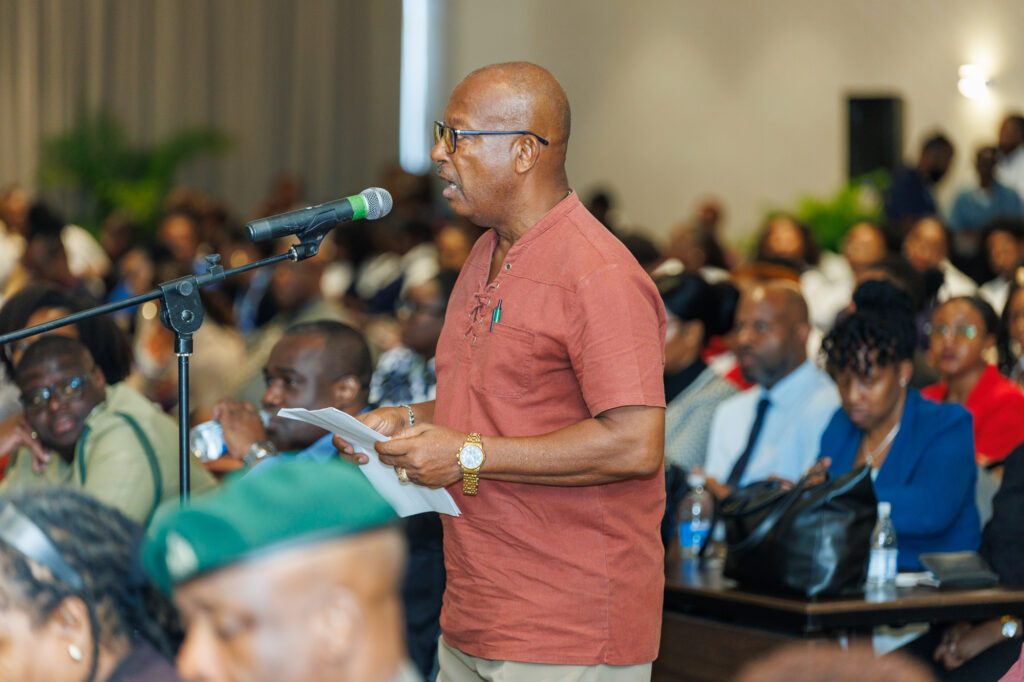Basseterre, St. Kitts, November 3rd, 2025 (PMO) — At the National Budget Forum held earlier this week, Commissioner of Police (Retired) Mr. Austin Williams offered a striking endorsement of the Drew-led administration, stating: “I wish to say that this is the most progress that I have seen in this Federation in a first administration, and it isn’t done yet.”
Mr. Williams’s words reflect a sentiment increasingly shared across the Federation of St. Kitts and Nevis, as the government led by the Hon Dr. Terrance Drew enters into the next phase of its first term. Since being sworn in in August 2022, the administration has set in motion a broad agenda of social, economic and environmental change, and the achievements to date are substantial.
On the economic and social front, the Government has placed citizens at the heart of its policy. Notably, the minimum wage was raised, civil-servants received an 8 per cent salary increase across the board and assistance programmes were launched to RESET and relieve arrears for thousands of families via the utility companies and the Housing Corporation.
In the education and skills sector, early childhood, primary, secondary and tertiary levels are being modernised through teacher training, digitalisation, scholarships and infrastructural investment. Meanwhile the Government has embarked on an ambitious diversification of the economy and a re-imagining of the national development model. The Sustainable Island State Agenda (SISA) is driving a long-term vision to transform ownership, productivity, climate resilience and quality of life. In the environmental and energy sphere the country has moved decisively, geothermal collaboration has been advanced; a landmark Environmental Management Act was passed; and land-regularisation, heritage-tourism redevelopment and renewable-energy expansions have been launched.
On infrastructure, housing and social protection the Government has reached life-changing milestones, with social and affordable housing projects, land ownership opportunities, arrears forgiveness, and debt-relief interventions have opened new pathways of stability for ordinary citizens. In the realm of governance and national security the Government has underscored both upward social mobility and strengthened state capacity, positioning the Federation as a model for “people-centric development” in the region.
Mr. Williams’s observation serves as a timely affirmation of this progress. As he indicated, while much has been achieved, the work is far from complete. The Government itself acknowledges the path ahead, ensuring that every citizen benefits, deepening economic diversification, accelerating energy transition, scaling up housing and land-ownership programmes, enhancing public-service delivery and embedding sustainability in every facet of decision-making.
As the Federation moves into the next chapter, the message is clear, the foundation is strong, the momentum real, and the objective remains unchanged: to build a nation where prosperity is shared, opportunities are abundant and no citizen is left behind.



